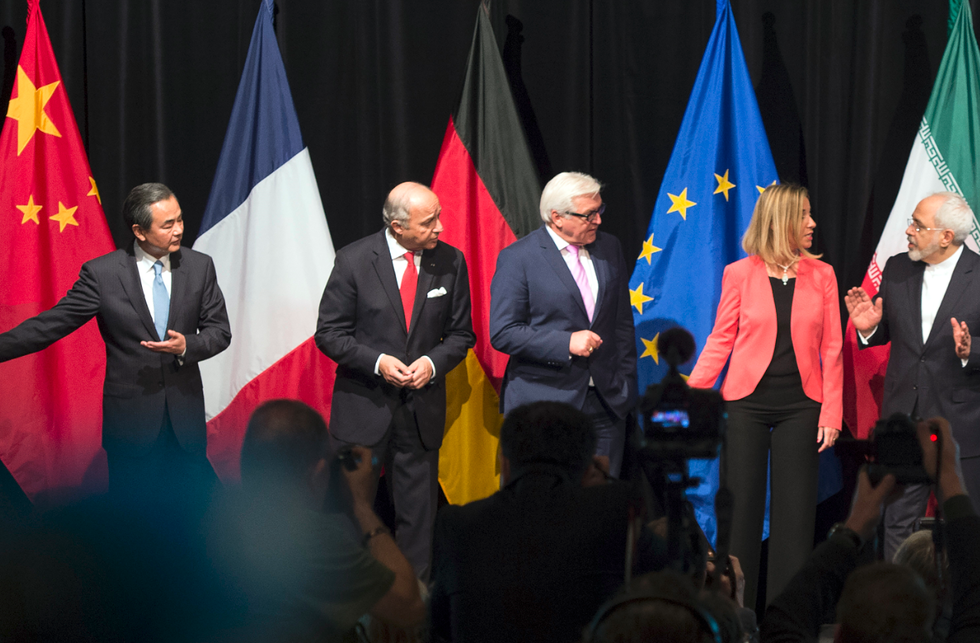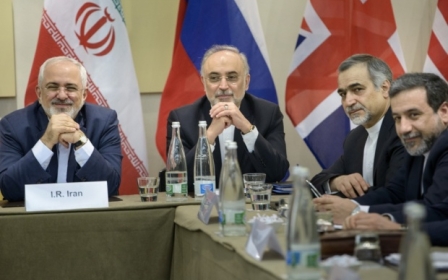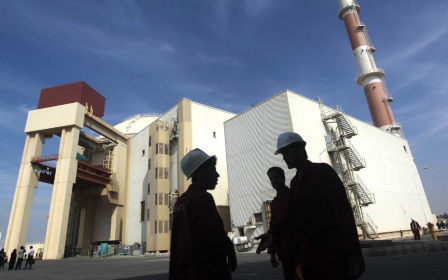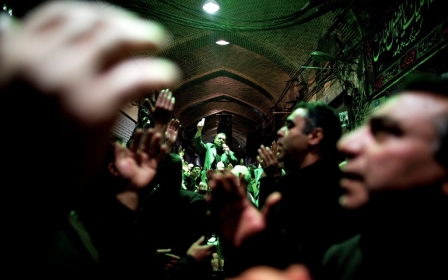Historic deal between Iran and world powers reached

Major powers and Iran struck an historic deal on Tuesday aimed at ensuring Tehran does not acquire a nuclear bomb, in return for relief from crippling sanctions.
US President Barack Obama endorsed the deal, saying that it meet "every single one of the bottom lines we established when we made a frame work this spring" when an outline for the deal was first hammered out.
He also stressed that the deal offered opportunity for a "new direction" in Iran ties and said that no deal would have meant "a greater chance of more war in the Middle East".
"It would be irresponsible to walk away from this deal," he added.
Iranian President Hassan Rouhani also backed the final outcome, saying that "all our objectives" had been met by nuclear deal.
"Many people prayed for the negotiations during the holy month of Ramadan; I'm privileged to announce their prayers have been answered," he said.
However, Israel, a long-time rival of Iran, quickly lashed out at the agreement, which Prime Minister Benjamin Netanyahu described as "a historic mistake for the world".
The breakthrough came on the 18th day of marathon talks in Vienna between Tehran and the so-called P5+1 - the United States, Russia, China, Britain, France and Germany.
Iran’s Foreign Minister Mohammad Javad Zarif and EU’s foreign policy chief Federica Mogherini gave a brief press conference in Vienna, with Zarif saying the deal is "not perfect".
"Today could have been the end of hope on this issue but today we are starting a new chapter of hope,” Zarif said.
After the press conference, a closed-door meeting began to formally take up the deal, which comprises more than 100 pages and has five different annexes attached.
The deal will be taken up by the UN Security Council in a few weeks to turn it into international law.
The deal with the P5 + 1 group of states will grant Iran relief as crippling sanctions will be progressively lifted, in return for curbs on its nuclear programme and fuel stockpile over the next 15 years.
Associated Press reported that the deal also included a compromise between Washington and Tehran that would allow United Nations inspectors to press for visits to Iranian military sites as part of their monitoring duties.
Under the deal, Tehran would have the right to challenge the UN request and an arbitration board composed of Iran and the six world powers that negotiated with it would have to decide on the issue.
Trita Parsi, the president of the National Iranian American Council (NIAC), praised the deal as the “greatest diplomatic achievement of the new millennium”.
“Today, diplomacy has triumphed and war is off the table. The United States and Iran have turned the tide on decades of enmity and instead have secured a nuclear deal that promises a better and brighter future,” Parsi said in a statement.
“Our negotiators have done their job to win a strong nuclear deal that prevents an Iranian nuclear weapon, all the while avoiding a catastrophic war,” he continued.
Parsi heralded the deal as one that would assist Iran in the path to progressive policies.
“This deal provides the Iranian people with the space to push Iran in the right direction: an Iran that respects human rights, pursues moderate policies internally and externally, and provides its people with the freedoms and opportunities that are their true inalienable rights.”
The New York Times has described the breakthrough that followed after 20 months of gritty negotiations as the “biggest diplomatic achievement of his presidency”.
The deal is also a diplomatic victory for Iranian President Hassan Rouhani, widely seen as a moderate seeking to bring his country in from the diplomatic wilderness.
The two presidents have both faced opposition from hardliners at home, as well as from Iran’s arch-foe Israel, believed to be the only country in the Middle East with atomic bombs, although it has never confirmed it.
“We are heading toward a bad deal, and in the period after it we will of course have to continue preparing to protect ourselves on our own,” Israeli Defence Minister Moshe Ya’alon said on Monday.
Speaking after the deal was announced, Israeli Prime Minister Benjamin Netanyahu called the deal “a mistake of historic proportions”.
"Iran is going to receive a sure path to nuclear weapons. Many of the restrictions that were supposed to prevent it from getting there will be lifted," Netanyahu said at the start of a meeting with Bert Koenders, the Dutch foreign minister, in Jerusalem.
"Iran will get a jackpot, a cash bonanza of hundreds of billions of dollars, which will enable it to continue to pursue its aggression and terror in the region and in the world. This is a bad mistake of historic proportions."
Saudi Arabia and other Sunni-led Gulf Arab states are also deeply suspicious of Shia Iran, accusing it of fomenting unrest in Syria, Yemen and elsewhere in the Middle East.
Many in the United States, particularly among Obama’s Republican opponents, also say the mooted deal is too weak.
The agreement will prove a “hard sell” in the US Congress, which will have 60 days to chew over the accord, top Republican Mitch McConnell said in an interview broadcast Sunday.
Details of the deal
Some of the highlights of the deal are thought to include:
- Billions of US dollars in frozen assets will be released.
- According to IRNA, Iran would no longer be barred from purchasing certain ‘duel-use’ machinery.
- Sanctions on Iran’s central bank, a national oil company, shipping lines, and the national air carrier would be lifted.
- UN inspectors given access to military sites for monitoring, but Iran could challenge requests for access, the Associated Press reported.
- Restoration of sanctions within 65 days if Iran were to breach the agreement.
- A UN arms embargo is expected to remain in place for five years. Missile sanctions would remain in place for eight years, Reuters reported.
- Iran will cut by about two thirs its number of centrifuges from about 19,000 to 6,104.
New MEE newsletter: Jerusalem Dispatch
Sign up to get the latest insights and analysis on Israel-Palestine, alongside Turkey Unpacked and other MEE newsletters
Middle East Eye delivers independent and unrivalled coverage and analysis of the Middle East, North Africa and beyond. To learn more about republishing this content and the associated fees, please fill out this form. More about MEE can be found here.




